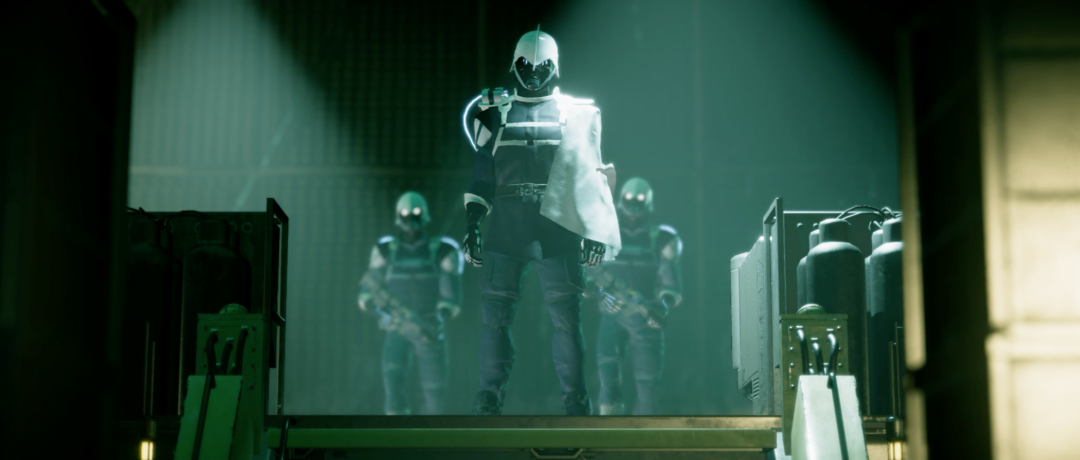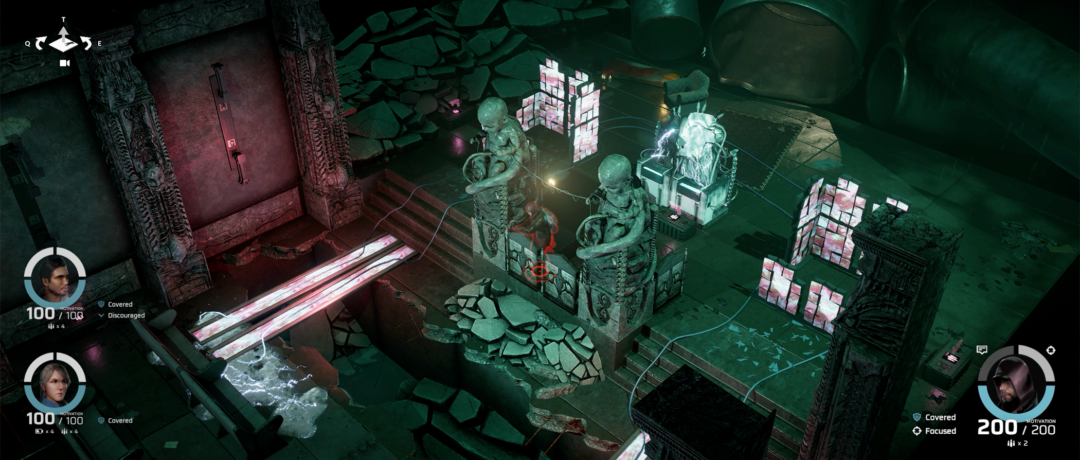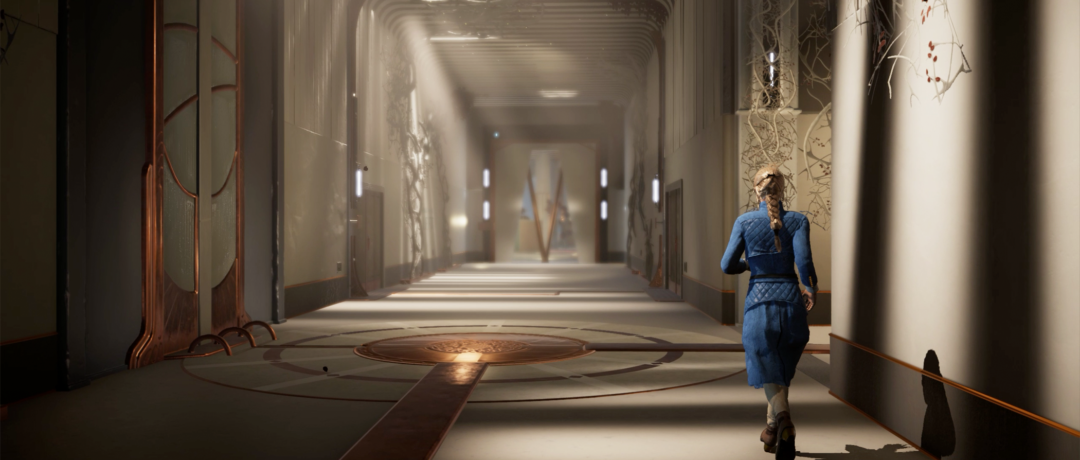Victor Lionhead spent 15 years working as a games journalist in Sweden, following a passion that started when he was seven and would cut out images and write articles to go with them. He loved Heavy Rain, Deus Ex, Mass Effect, and the works of Telltale Games but also thought he could add something unique to the industry and express his creativity by segueing to design.
He began building what would become Rain of Reflections in RPG Maker with JRPG-style battles and then transitioned to Unity, which allowed him to build in stealth tactics systems more reminiscent of XCOM or Invisible, Inc. He got funding for the game in 2015 and assembled an eight-person team at Lionbite Games, drawing in people with eclectic backgrounds including a DeviantArt artist and a UI artist who was formerly in commercial design.
“I don’t know what made them buy into this or believe me, but I’m very thankful for this chance,” Lionhead said. “Something probably stuck with them when I showed them my first presentation with concepts and the basic idea for this new breed of adventure combined with turn-based encounters.”
Launching on Steam on Sept. 27, Rain of Reflections is set in a future where humanity has become infertile. The first of three promised chapters follows Wilona, a scientist studying the infertility crisis who plots to free the lastborn child with the help of her hacking skills and technology that allows her to become temporarily invisible.
Hacking started as a simple prompt, where players could click “hack” when interacting with consoles, but grew into a series of minigames based on whether they’re trying to intercept communications, breach a firewall, or crack an electronic lock. Cracking locks involves solving a puzzle by flipping pieces around, breaching a firewall requires a balance between speed and control as you try to roll a ball away from encroaching security, and tuning into a guard’s radio requires carefully listening and trying to pinpoint where a sound is coming from.
“I felt that hacking in games is mostly just a chore,” Lionhead said. “We have to have hacking here, but how do we make that fun? How do we make an arcade-type of game out of hacking? What types of systems would you want to breach? They’ve been by design made close to what we’re trying to convey.”
Stealth lets Wilona make short jaunts without being spotted by hostile forces. She can still alert enemies by making noise or interacting with objects, which can force her to take cover to avoid being shot.
“We’ve made a completely seamless system where you can go all the way from stealth into drawing suspicion and then you’re in a confrontation with guns blazing and then you can shake your enemy,” Lionhead said.

Rather than having a health total, Wilona and other characters lose motivation when they’re left exposed or attacked. If Wilona’s motivation drops to zero, the game ends. When allies or enemies reach the same level, they will flee and can be killed or allowed to escape. Characters can also talk in combat, insulting or encouraging each other to increase motivation and provide other mechanical benefits.
“I’ve always been interested in how turn-based encounters are designed,” Lionhead said. “Of course I love XCOM. In a sense, this is a love letter to that game. But I’ve always felt that the design felt too much like a board game to me. I wanted a design that’s much more intimately connected to story and characters.”
The motivation system means fights can be won in novel ways. One level features a confrontation with a weapons dealer in an extremely creepy temple filled with giant baby structures, electric traps, and a generator he’s incredibly proud of. He’s got the higher ground, so the easiest way to defeat him is to shoot up the generator and demoralize him. That still requires a lot of running and hiding between pillars and pews that he’ll keep blowing up.
“In a sense, the destruction of the battlefield is the character’s toughness,” Lionhead said. “As soon as you’re out of cover or you’re not moving or you’re exposed, it’s a real threat to you. That adds so much to the drama.”

Lionhead aims to give players as much control as possible in Rain of Reflections, so you won’t find any quick time events or vague dialogue choices in his game.
“We’ve really consciously set up the lines so you can read them in full,” he said. “We wanted to move away from it being kind of vague and you’re just picking a mood or ‘I want to be good’ or ‘I want to be evil.’ We want to show you exactly what’s going on in (Wilona’s) head at all times and give you complete control over every single input.”
The dialogue will allow players to learn more about the characters and the game’s cyberpunk, neo-noir setting. They’ll also see more of the world and experiment with different mechanics in the next two chapters, which will follow a deadbeat private investigator and a resistance fighter, respectively. Lionhead said dividing the game into chapters let his small studio focus its resources and bring depth to each character and story rather than try to combine them into one game. If the first chapters are successful, Lionhead said he’d love to continue the series.

“I’ve been spending so much time with the world-building over these years it’s turned out to be such a multifaceted world,” he said. “The city has so much more to show beyond chapter one. I’m really excited about the prospect of telling more through these other characters.”
Rain of Reflections is part of a resurgence in cyberpunk video games including CD Projekt’s Cyberpunk 2077, One More Level’s Ghostrunner, and Anshar Studios’ Gamedec, which Lionhead attributes to more designers looking to put their own mark on a formative genre.
“I grew up with Blade Runner and The Matrix and Final Fantasy VII,” he said. “I just love that atmosphere. I wanted an atmosphere that you can almost touch because it’s so intense. I think you get that from the neo-noir vibe.”






Published: Sep 19, 2019 05:49 pm